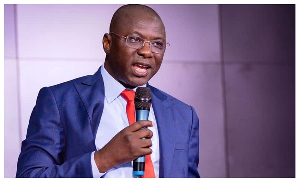The World Bank has noted that many developed economies are facing migrant shortage in their agriculture sector.
This according to the World Bank Group President David Malpass, poses food supply risks in those countries and the world in general.
In his remarks at a high-level event on Financing for Development in the Era of COVID-19 and Beyond, he said : “…given the combination of a severe health crisis, a deep global recession and unprecedented societal impacts. Our programs are working to address as many of these problems as we can, and I invite you to join in these efforts with additional financing.
“Our April estimates showed that the pandemic, and the economic shutdown of the advanced economies, will push 60 million people into extreme poverty in 2020, increasing the number of the world’s population living on less than $1.90 per day toward 700 million people and causing the global poverty rate to rise for the first time since 1998, when the Asian Financial Crisis hit.
“I worry that these numbers will go higher. School closures in 191 countries are affecting 1.5 billion students. Reduced incomes for migrant workers will lower remittance flows back to home countries, while migrant labor shortages in the agriculture sector of advanced economies pose food supply risks.
“The wide spillover from the pandemic and the shutdown in advanced economies hits the poor and vulnerable – women, children, elderly, and healthcare workers – hardest, deepening the inequality from lack of development and making the health crisis even worse.
“Millions of people in East Africa are facing a triple crisis, the health emergency, the global recession, and locust swarms that are threatening food security and livelihoods. We recently approved and began the implementation of a regional program focused on the locust crisis.
“There is an urgent need for additional financial action through the pathways we have available and I again invite you to join that financing effort.
“The World Bank Group is working to help countries boost health spending, strengthen social safety nets, maintain both public services and a private sector that creates jobs, and counter financial disruptions.
“We are able to deploy as much as $160 billion by June 2021, including the frontloading of $51 billion worth of grants and highly concessional resources from the IDA19 replenishment. The other multilateral development banks (MDBs) have committed to adding another $80 billion to the MDB response, bring the total to $240 billion.”
Africa News of Tuesday, 2 June 2020
Source: laudbusiness.com







![NPP Flagbearer, Dr. Mahamudu Bawumia [L] and NDC Flagbearer John Mahama NPP Flagbearer, Dr. Mahamudu Bawumia [L] and NDC Flagbearer John Mahama](https://cdn.ghanaweb.com/imagelib/pics/869/86902869.295.jpg)









